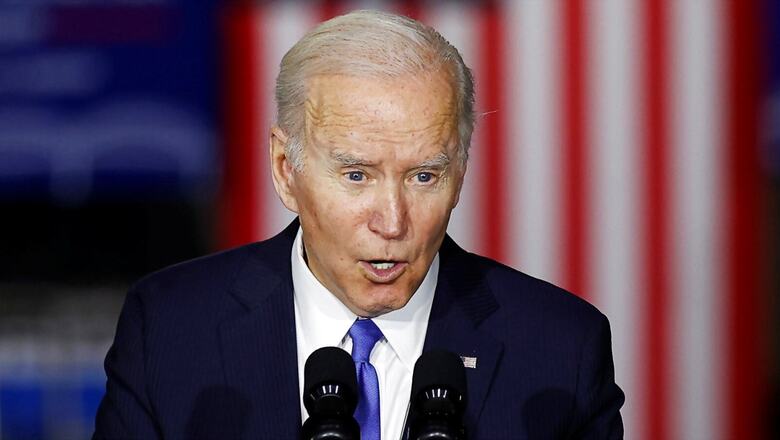
views
The United States of America and its President Joe Biden will virtually host the leaders of over 100 countries on December 9 and 10 as part of the ‘Summit for Democracy’. The Summit was Biden’s idea of bringing together democracies of the world to discuss and deliberate the issues concerning human rights, corruption and countering authoritarianism. The summit excludes countries like China, Russia and Turkey, which the US deems ‘undemocratic’ states.
However, the Summit is not just about democracy. It signals the intent of the Biden administration to unite the world’s democracies for protection of individual liberties. This brings us to the area of technology which is now at the heart of protecting democratic values. There is a need for global consensus among all democratic states to arrive at a common technology governance framework that is in line with the democratic rights of citizens. The summit will be a platform for states to find the right balance of governance with respect to regulation and freedom in the technology sphere.
Tackling Digital Authoritarianism
There are visible signs of misuse of technology by semi-authoritarian and authoritarian regimes to stifle the voices of their own citizens. This has been seen in the form of frequent digital shutdowns preventing accessibility to the internet, excessive regulation of technology platforms or even the threat of state-sponsored surveillance.
The concept of a ‘free and open internet’ is supposedly on the cards at the Summit, which vouches for the creation of an accessible and secure internet. This also means that there will be an open cross-border flow of data across networks while ensuring protection of democratic rights of citizens. There is also the threat of individual privacy rights being trampled upon in the wake of the Pegasus scandal that made news this year. The possibility of the usage of spyware by government agencies to target dissidents goes against the tenets of a democratic society. The Summit should address this blatant infringement of rights using technology as a tool so that authoritarian regimes can be held accountable for their actions.
Cybersecurity is a term that has gained currency in the last decade. But in the present day, the threat of information warfare looms large and addressing global cybersecurity challenge is of utmost importance. The easy access to information warfare tools for both state and non-state actors are an added incentive to focus on governance of cyberspace. With misinformation posing a significant challenge for state authorities, the Democracy Summit can help in initiating a dialogue on development of a governance framework in the cyberspace domain.
The control of digital networks by ‘Big Tech’ companies is something that could be of interest at the Summit. President Biden in his election campaign had referred to possible stern actions that could be initiated against the companies. In an executive order that was signed in July, the Biden administration aimed at improving competitive practices to reduce the domination of big tech firms. However, in September, there were talks of a possible public-private partnership between the US government and Big Tech firms towards protection of cybersecurity rights. This monopoly in the tech industry has created dilemmas among policymakers, knowing the economic and strategic value of these firms. The Democracy Summit can provide a platform for discussions on effective regulations to prevent ‘Big Tech’ from disregarding the ethical standards while leveraging the economic value of technology and internet.
Kickstarting Technology Alliances
The future of multilateralism lies in the creation of need-based coalitions focusing on specific areas of technology cooperation. There is always the possibility of bifurcation of technology with different blocs of influence operating across the world. With technology being such a contested domain between the United States and China, there are already signs of fissures in the technology ecosystem like 5G infrastructure. Chinese-made Huawei equipment is in use in China and its Belt and Road Initiative (BRI) allies while the West, including the Five Eyes, have banned Chinese telecommunication equipment in their networks citing national security concerns.
This stresses the need for multilateral cooperation in specific technology areas, which might emerge as strategic areas of importance in the near future. Technology alliances or coalitions are needed in the current scenario for diversification of critical technology supply chains. The Summit will bring together states with varying levels of technical knowledge and different domains of technical expertise. Achieving self-sufficiency in key technology areas will continue to remain out of reach for even the most technologically advanced states. Finding and building the right partnerships can help tackle this as well as the growing technology related geopolitical issues.
The idea behind developing key technology alliances rests in the ability to build redundancy in the supply chain that would, in turn, reduce dependencies on rivals like China. There is a need to construct collective technical expertise in key areas of emerging and critical technologies among the democracies of the world. This must be done in all aspects of the technology supply chains that require collaboration between like-minded nations looking to achieve high-tech self-sufficiency. The Summit can help develop initiatives on facilitating technology trade and transfer in the form of subsidies and other incentives. There is a need for efficient dissemination of certain technologies that are in line with global democratic values. The Summit should promote the use of these technologies that protect individual liberties and cannot be used for infringing on democratic rights.
President Biden’s ‘Summit for Democracy’ will offer a futuristic view on how to ensure upholding of democratic rights around the world. Technology and its role in protection of individual liberties remains integral in the pursuit of maintaining a global standard of democracy. With technology at times being abused for wrongful activities or smothering people’s rights, this Summit should look at ways of using technology to protect citizens and their rights.
The author is Research Analyst, The Takshashila Institution. The views expressed in this article are those of the author and do not represent the stand of this publication.
Read all the Latest Opinions here




















Comments
0 comment